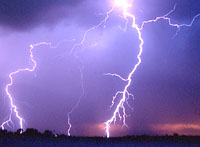Journal Entry
The kids continue to read and do their school work, mingling in ample time to play in the snow. The boys finished reading a book on Davy Crockett and are now reading Up From Slavery. They get to pick their fictional reading, which I notice has been trending toward Louis L'Amour stories. Of course, each day they do their math assignment as well as a writing assignment.
I have been reading to them a book by Bruce Chadwick entitled "The First American Army". It is a good story on some of the men fighting under Washington. I was delighted to discover a new American hero named the Revered Ammi Robbins.
He was a Congregationalist pastor that pastored in Connecticut. I did a bit of research on him and I believe his family traveled across the ocean aboard the Mayflower. Many of the Robbins men were pastors and eventually held offices at various colleges. Rev. Robbins volunteered to serve as a chaplain, enlisting four different time in spite of the horrific things he endured as a chaplain. He was with Arnold's troops during the disastrous campaign to invade Canada. He labored among men dying of small pox and was sick several times himself. He was a very revered chaplain who went beyond the call of duty in comparison to most chaplains.
He left behind a journal which seems to no longer be in print. This book quotes the journal often and I would love to get a hold of a copy. He had a great love for the troops and at times was able to preach before crowds of thousands. He was often praised for his powerful preaching, to which he replied "May I be more concerned to please God and less to please men." He was advised to not reenlist due to his health, yet he was moved with compassion due to the plight of the men and their need for prayer. At a visit to the hospital at Ticonderoga, he remarked "Never was such a portrait of human misery as in these hospitals." He prayed with them and preach with them, urging them to "Be ye therefore sober and watch unto prayer."
Our hens continue to lay well. We are preparing to deliver some eggs to a neighbor that has an incubator. The neighbors 4-H projects require birds for showing at the fair this fall to be born this year. So we are going to take 3 dozen eggs and see if any birds hatch. This family has a lot of knowledge in raising birds and it sounds as if they were surprised to hear how well they were laying and how quickly they reached a nice butcher weight (for a dual purpose heavy breed.)
It's in the dead of winter, but I have started getting seed catalogues already. I love the cold and snow but I did notice that I was looking at the one of the spring catalogues the other night! Thinking of spring got me thinking about hunting for mushrooms. Mmm!


